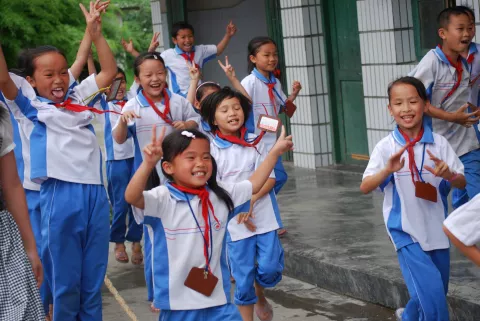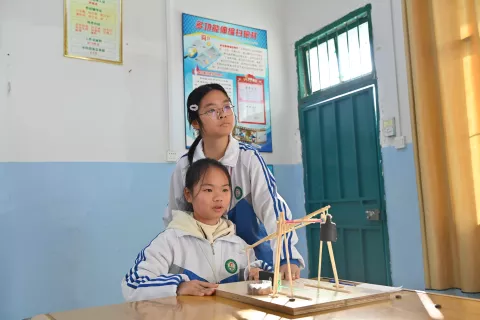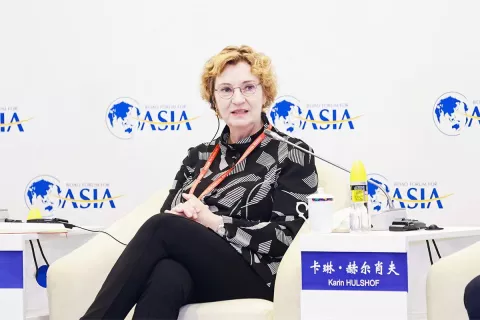Internet technology inspires young minds in rural Western China
Internet technology inspires young minds in rural Western China
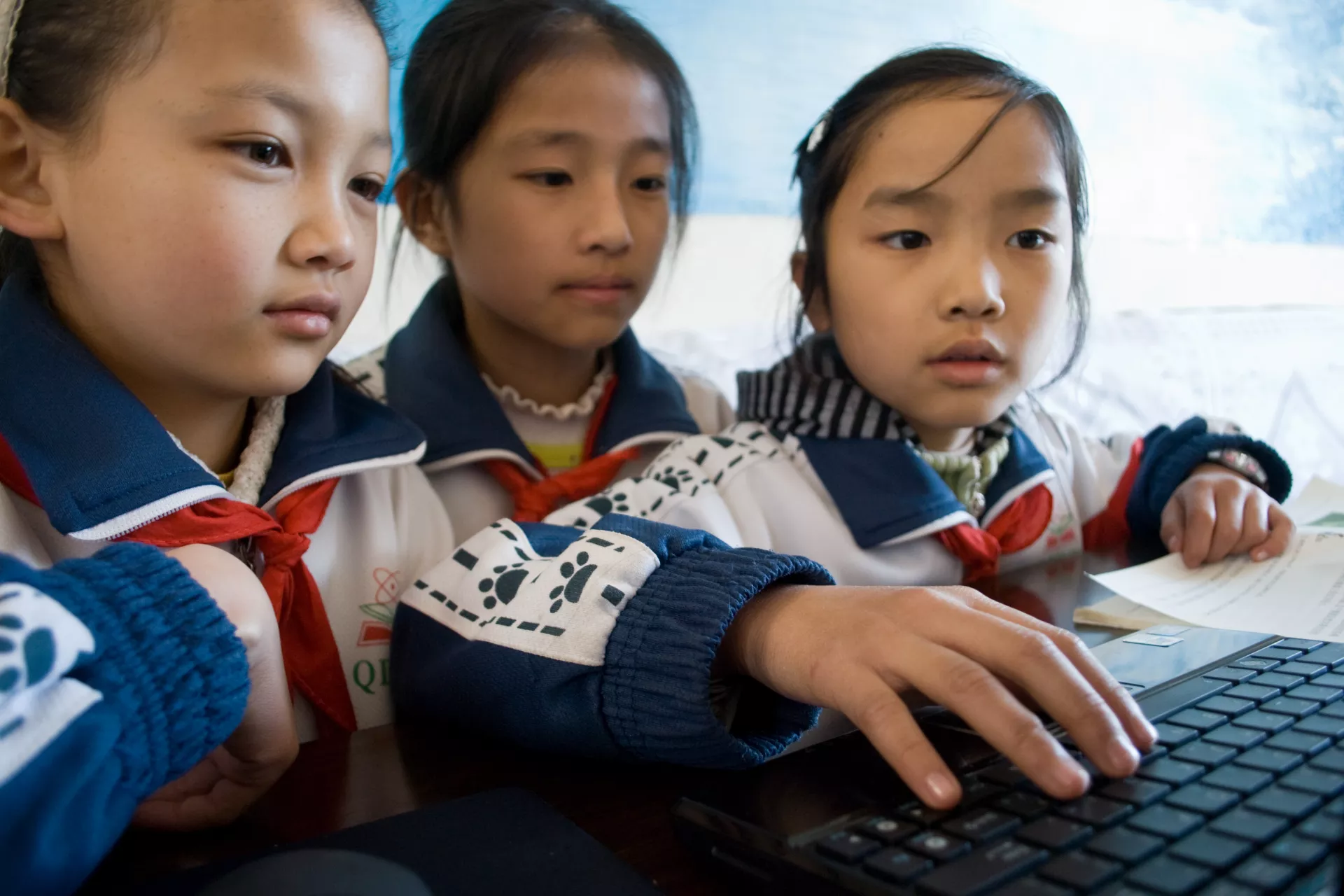
- Available in:
- 中文
- English
DEC 2009, Yunnan Province – The technological divide between China's cities and rural areas is a daily reality for the children of Yongping, a County tucked in the mountains of southwest China's Yunnan Province.
With an average annual per capita income of less than 2000 RMB, Yongping is one of the nation's poorest counties. Home to more than 20 ethnic groups, it is composed of small villages scattered among the mountains.
"We have 1000 staff and students in our school, but only one computer that is not connected to the internet," said Mr. Ma Jiquan, Principal of Qudong Town Primary School.
Computer skills used to be mastered by only a handful of students whose families could afford personal computers. That is all set to change as of this winter: a new course called Information Technology has been added to the weekly curriculum of Qudong Primary School, whose 719 students will gain the opportunity to catch up to their peers in the cities.
In an initiative funded by British Telecom, UNICEF has provided 13 laptops with internet access to each of the 40 Child Friendly Schools in Qinghai, Ningxia, Yunnan and Jiangxi provinces. This initiative will allow rural children to access the benefits of computer technology, a tool with ever-increasing importance for learning.
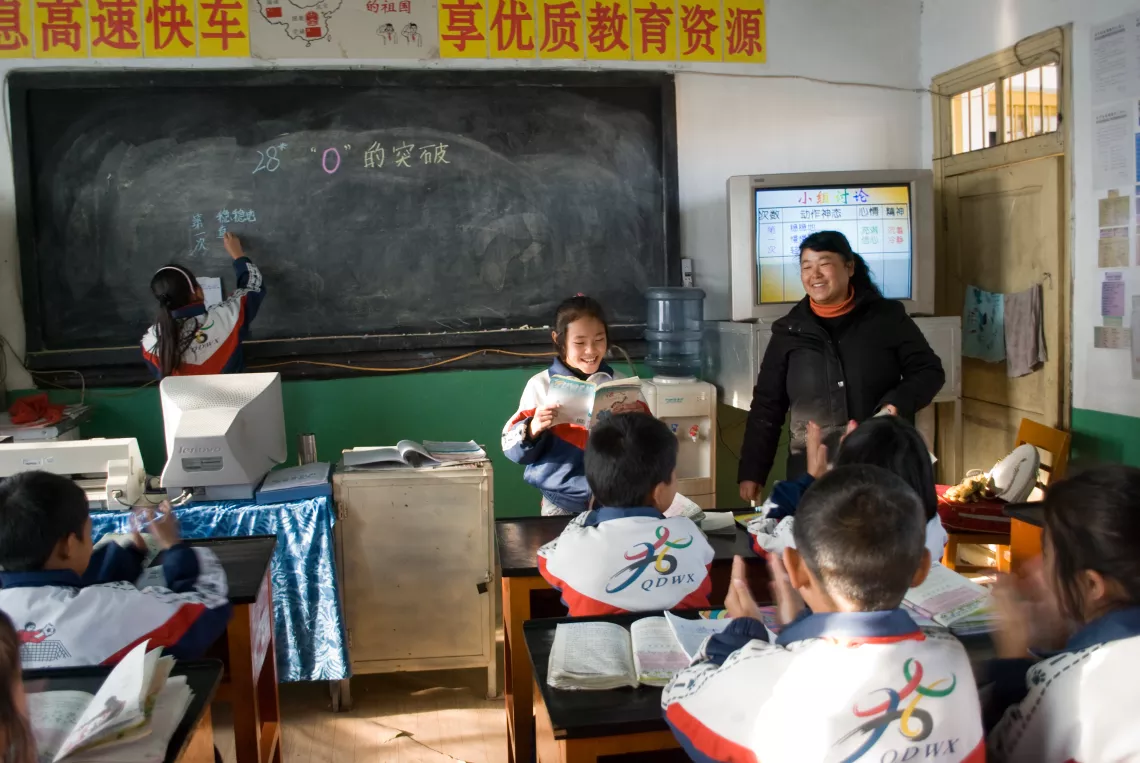
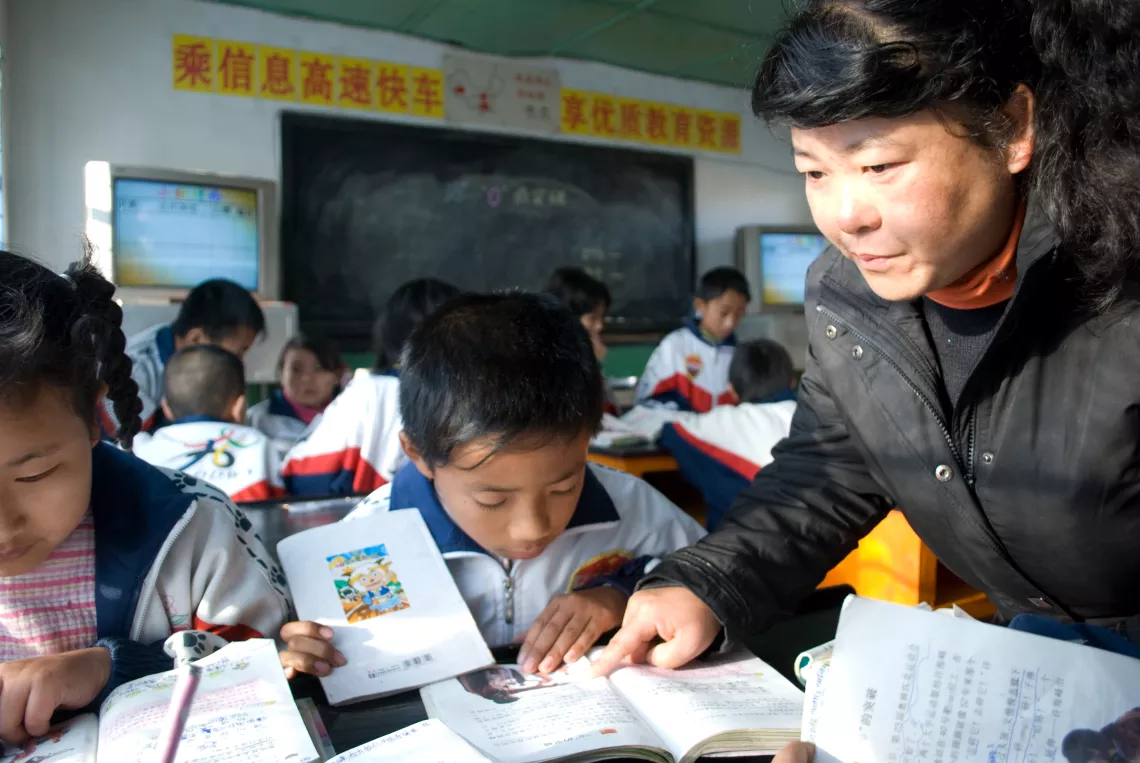
Bridging the gaps
"We started to use the new laptops about one month ago. The students are so happy that they rush to the computer room immediately after the previous lesson and are reluctant to leave after the class. Most of them have never touched a computer before, so I am teaching them basics like how to place their fingers on the keyboard," said teacher Yang Hongmei.
In 2005, UNICEF introduced the Child Friendly approach and the Distance Education project in Qudong and nine other primary schools in Yongping County. With satellite signal receivers, the schools can access and download teaching materials from the resource pool of the National Centre of Educational Technology. British Telecom-supported IT facilities provide rural schools a higher level of interaction with access to the World Wide Web.
Ms. Yang Xingmei, a fourth-grade teacher, felt that in the past she had no one to turn to when she had questions. "Now I can seek help from the internet and search for materials to use in class," she said.
Though just starting to learn the basics, like proper posture and touch-typing, ten year-old Ma Dan and her classmates are eager to get connected with the outside world through the new laptops. "Soon I will learn how to search learning materials on the internet," the fourth grader said.
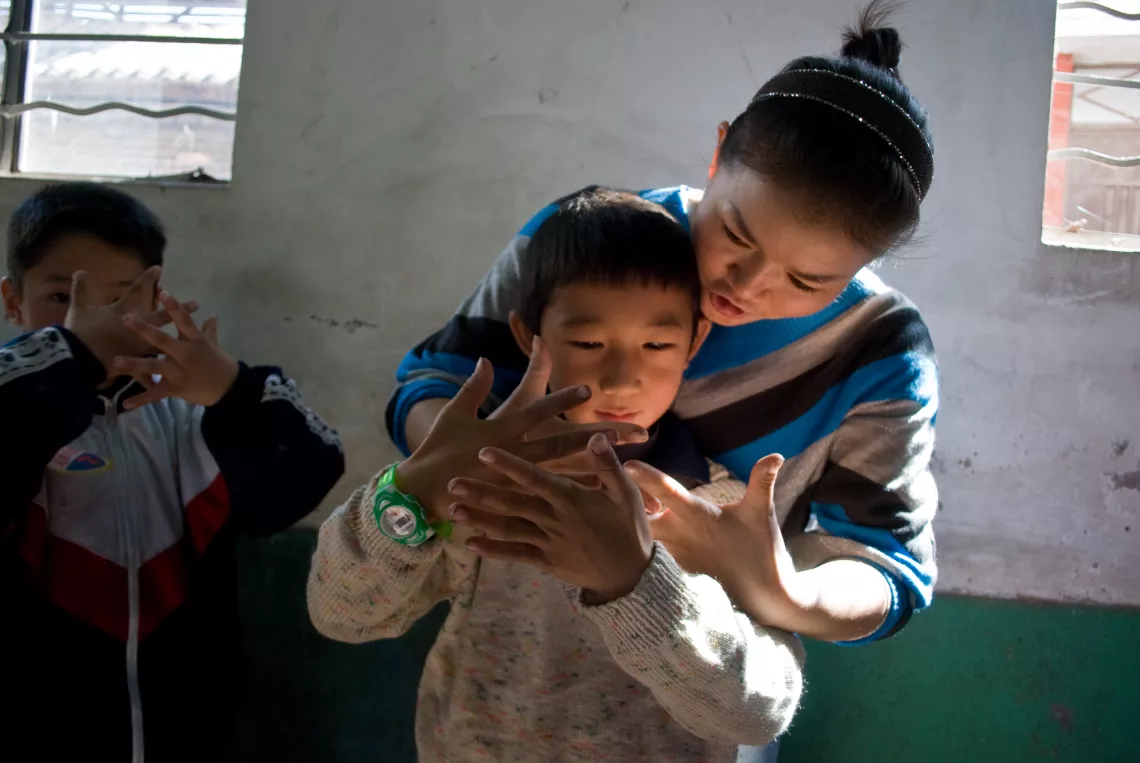
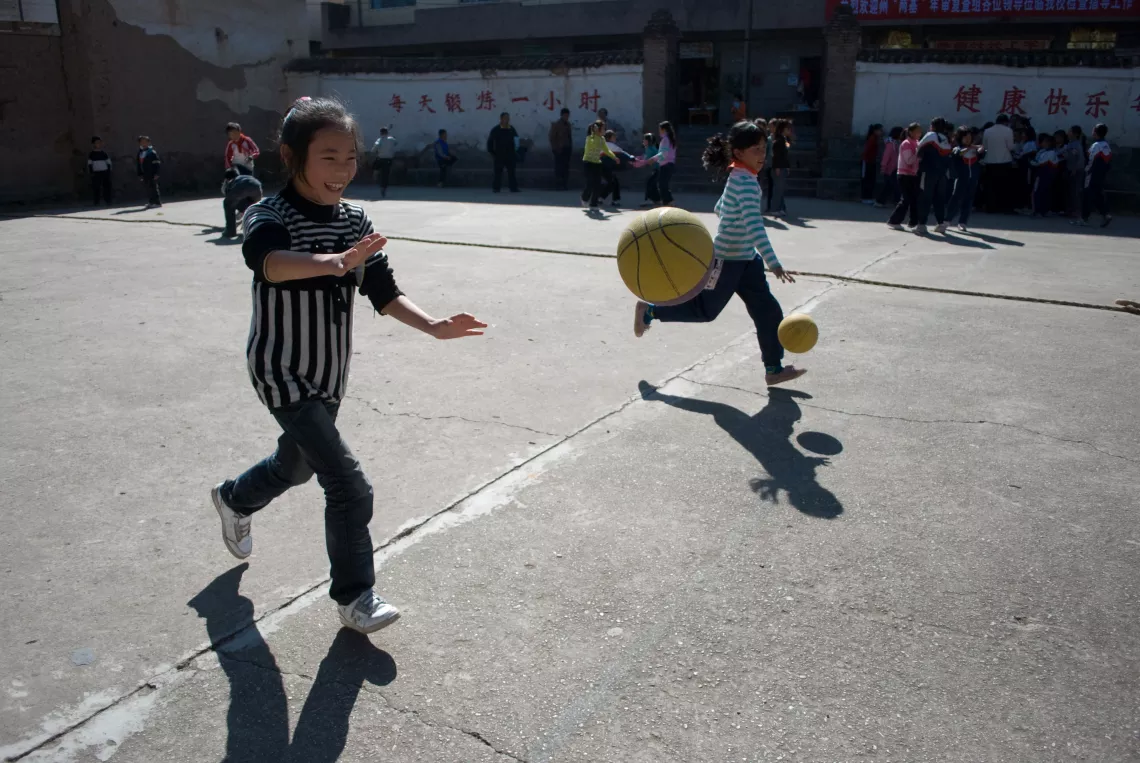
Nurturing the future
The IT facilities are also enhancing UNICEF's project-based learning approaches, which aim to turn students into more active learners.
Inspired by these approaches, every class is divided into small learning groups, each of which elects a team leader, a minute writer and a spokesperson who will stand in front of the class to present the results of a discussion.
11-year-old Li Ruiting and her team finished a project on garbage recycling with the help of the internet: "We designed the project, collected rubbish and sold it to the recycling station. Then we did a survey in our school and found that if everyone recycles their garbage, we can raise more than 400 RMB. This could be donated to earthquake-affected areas in Sichuan," she said.
"Whenever we were met with difficulties, we could find answers by ourselves through the internet," said Li.
"I can find more information on the internet than in a textbook," said Haitao, aged 10. "I want to be a computer expert and design high-tech products, like a spaceship that can travel the universe."
"Even if we currently lag behind our counterparts in the cities, we can do something to reduce the gaps," said Mr. Yang Fei, an officer of Yongping County Centre of Educational Technology. Fei has been working with UNICEF on this project since 2005. "We have a limited capacity and can't make big leaps. They may seem like small steps, but we are ultimately cultivating talents for a future society."


